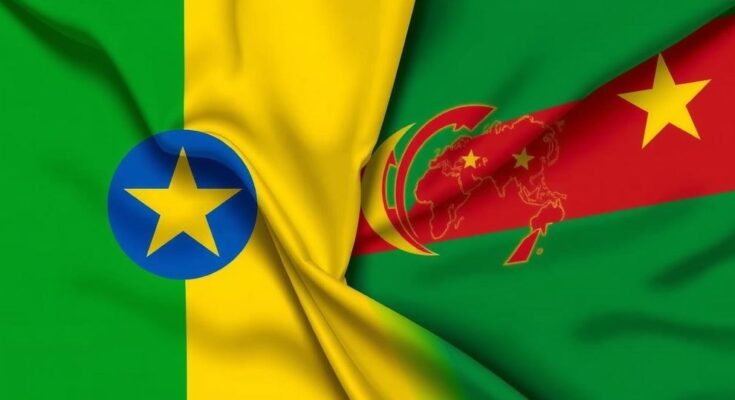Somalia’s President Hassan Sheikh Mohamud condemned Ethiopia’s aspirations for further territorial claims on Somali land, asserting these actions disturb regional stability and violate international law. He emphasized the importance of military agreements with Egypt and Turkey to safeguard sovereignty, while Ethiopian Prime Minister Abiy Ahmed insisted on peaceful terms for Red Sea access through a controversial agreement with Somaliland. The growing tensions encapsulate the complexities of territorial disputes and military presence in the Horn of Africa.
During a parliamentary address, Somalia’s President Hassan Sheikh Mohamud castigated Ethiopia for its ongoing territorial ambitions towards Somalia, denouncing what he characterized as an “obsession” with the nation. The president pointedly remarked that Ethiopia is intent on annexing more Somali land, despite possessing a portion of it since the colonial era without significant opposition. He highlighted that Ethiopia’s actions are contrary to international law, stating, “Ethiopia occupies Somali land from colonial times and aims to take more now.” President Mohamud also discussed Somalia’s military collaborations with Egypt and Turkey, which he believes will help counteract Ethiopian territorial aspirations. While acknowledging Ethiopia’s role in the African Union, he criticized the nation for allegedly violating basic AU principles, particularly in light of a recent agreement that grants Ethiopia access to the Red Sea in exchange for acknowledging Somaliland’s sovereignty. Amid ongoing military operations against the jihadist militant group Al-Shabaab, President Mohamud expressed skepticism regarding the necessity of Ethiopian troops, who are part of the African Union Transition Mission in Somalia (ATMIS). He asserted that Somalia has successfully liberated regions from Al-Shabaab without Ethiopian military support, countering claims that Ethiopian withdrawal would lead to a resurgence of the militant group. In a parallel address, Ethiopian Prime Minister Abiy Ahmed reiterated his nation‟s interest in accessing the Red Sea without resorting to military conflict. He clarified that Ethiopia’s agreement with Somaliland has been misrepresented, stating that the proposed terms were originally for a 99-year lease, later adjusted at Somaliland’s request to a 50-year term. Overall, the exchange reflects the complexities of border disputes and regional diplomacy within the Horn of Africa, highlighting the tensions between Ethiopia and Somalia surrounding territorial and security issues.
The territorial relationship between Ethiopia and Somalia has been fraught with historical complications stemming from colonial legacies. Ethiopia’s interests in the Red Sea and its recent agreements with Somaliland have incited concerns in Somalia about potential land loss and violations of sovereignty. The Horn of Africa region is characterized by intricate dynamics involving various nations, where defense pacts and military operations significantly influence regional stability and security. The presence of Ethiopian troops in Somalia, as part of international missions to combat Al-Shabaab, adds another layer of debate regarding the effectiveness of foreign military involvement in domestic security matters.
In summary, the statements crafted by Somalia’s President Hassan Sheikh Mohamud and Ethiopian Prime Minister Abiy Ahmed signal a continuing tension over territorial claims and the strategic interests that define the Horn of Africa. Somalia remains vigilant regarding Ethiopia’s ambitions while seeking to reassure its citizens of its capability to manage internal security independently. These developments emphasize the significance of diplomatic negotiations and regional alliances in addressing historical grievances and promoting stability.
Original Source: www.garoweonline.com




